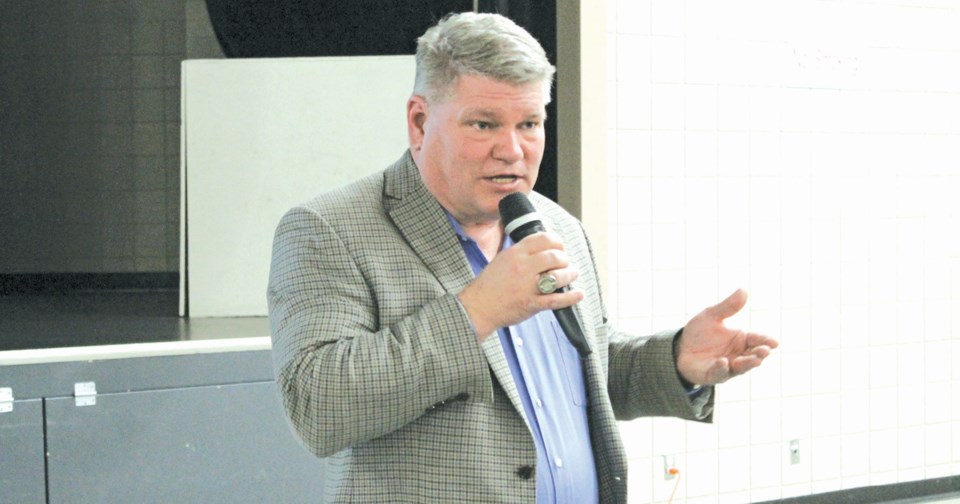EAST CENTRAL — One of east central Saskatchewan’s local MPs is saying the canola trade dispute between Canada and China is a political crisis caused by the actions of the prime minister.
Randy Hoback, the MP for Prince Albert, said it’s Justin Trudeau's uneven application of the principle of the rule of law when it came to the arrest of Huawei executive Meng Wanzhou and the prosecution SNC-Lavalin that has the Chinese upset.
Hoback made the claim in Tisdale on April 26, when he hosted a public meeting on the trade crisis.
The current political hostility between China and Canada started in December, when Canada arrested Meng under charges of fraud and violating American sanctions against Iran.
The fraud allegations against her centre around the relationship between Huawei and a company called Skycom, that did business in Iran. According to US prosecutors, Skycom was a "hidden" subsidiary of Huawei.
China demanded that they release Meng back to them. Canada refused, saying the government couldn’t interfere with the judicial system.
Hoback said he doesn’t know all the details about the Meng arrest.
“I have to trust the system will use the tools in their hand to come to the appropriate judgement.”
Days after Meng’s arrest, China detained two Canadian citizens, Michael Kovrig and Michael Spavor. The country alleged that the two Canadians conspired to spy on the country.
In February, citing unnamed sources, a newspaper reported that Trudeau’s aides attempted to pressure Jody Wilson-Raybould, while she was attorney general, to intervene in the prosecution of SNC-Lavalin. SNC-Lavalin has been charged in 2015 of corruption and fraud, over allegations it used bribery to get government business in Libya. A conviction could bar the company from bidding on Canadian government business, potentially devastating it.
Trudeau denied any impropriety.
Hoback said the pressure on Wilson-Raybould was interfering with the judicial process.
“When he did that, he was lecturing the Chinese at the same time about the importance of the judicial system, so on one hand you’re preaching to the Chinese about how you have to follow the process and it won’t be mingled with and there won’t be political interference,” the MP said. “Then all of a sudden they see evidence that you’re doing the exact opposite with SNC Lavalin.”
On March 1, China blocked Canadian canola from Richardson International, and on March 26 from Viterra Ltd. These companies are two of Canada's biggest exporters for canola. China said that the shipments were contaminated with pests. Canadian politicians have insisted there is no basis for that claim.
At the meeting, Hoback gave three calls to action for the trade dispute.
The first action, he said, is to send a technical delegation to China. He wants the shipments examined to see if there are any problems. He also said the ambassador should be replaced by someone respected by Chinese officials.
Hoback said he believes the risk of arrest of the officials by Chinese authorities to be “very small”.
“That’s always going to be an issue with China, we’ve seen that with two individuals right now in China, Japan said they have nine individuals detained,” Hoback said. “Those are the risks of being there, but I would like to think when you have someone of stature like an ambassador going to China, and the relationship we have with the amount of trade going back and forth, that that wouldn’t happen. I think the odds of that happening are very small.”
The second action is to increase loan limits and other changes to the advanced payment program.
“In this scenario they could take the grain that’s not going to be sold and allow that advance instead of it being forced to be paid back right away, let it be paid back when that grain gets sold in the new crop year.”
The third action is to launch a formal trade complaint with the World Trade Organization against China.




